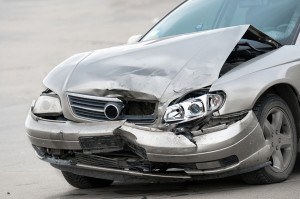When To Total A Car Vs Making Repairs
A car accident is certainly a frightening experience, and the aftermath can also be very stressful. The upset and inconvenience following the accident, when you are left without your car and have an array of decisions to make can be quite taxing. Your insurance company will have a lot to say about those decisions. Knowing the right questions to ask, and how to deal with your claim adjuster will be immensely helpful.

When the adjuster looks at your car, he will look at the current value of the car using a database maintained by the insurance company. He will also consider how much it will cost to pay for a rental car for you while you are without your car. In many states, including Arizona, auto insurers are required to include sales tax as part of the total-loss settlement check. All this will factor into the determination of whether to total your car or repair it.
Moreover, there may be mechanical damage that is not apparent, so the vehicle should also be examined by a qualified mechanic. Some mechanical damage is more obvious, such as water or oil leaking out. Other damage, such as alignment or a damaged universal joint, may need to be determined by a mechanic.
Furthermore, the insurance company will most likely not take it into account if your car was in excellent condition, well maintained with regular oil changes, etc. They also aren’t likely to fairly reimburse you if you just purchased new tires or brakes.
Keep in mind that what the insurance company wishes to pay you may or may not be what is a fair market value based on the condition of the car before the accident. If you disagree with the assessment, you can refuse the settlement and continue discussions with the insurer. If you do not agree and sign over the title of your vehicle, then there is no agreement and no settlement. The insurance company is responsible by state laws to reimburse you in an amount that is equal to the fair market value of your auto. There are several resources available to you for help in determining the market value of your vehicle.
If your vehicle is declared a total loss and you wish to keep it, you can also negotiate with insurance company. You can refuse the settlement, possibly receive a reduced insurance payout and keep the car and repair it at your own expense, you can sell the car as is, or part it out.
If your vehicle was not totaled, do not let the insurance company dictate which body shop or mechanic you use for your car repair. It’s a good idea to get 2 to 3 estimates.
Although this is a trying time, remember that you are the one in control, not your insurance adjuster.
 Written By Chris McCurdy
Written By Chris McCurdy
Scottsdale Muffler & Automotive
1710 E Curry Rd
Tempe, Arizona 85281
Office: 480-994-4741
Website: https://scottsdalemuffler.com/auto-repair/phoenix
Monday: 8:00 a.m. – 5:00 p.m.
Tuesday: 8:00 a.m. – 5:00 p.m.
Wednesday: 8:00 a.m. – 5:00 p.m.
Thursday: 8:00 a.m. – 5:00 p.m.
Friday: 8:00 a.m. – 5:00 p.m.
[jetpack-related-posts]





